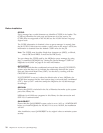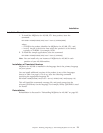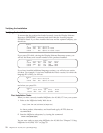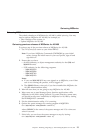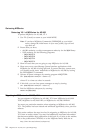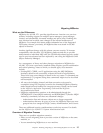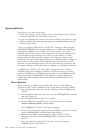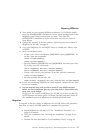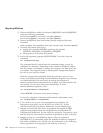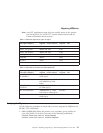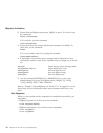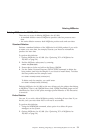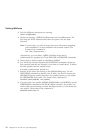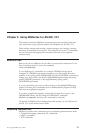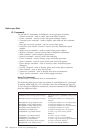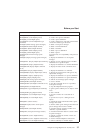2. Restore the MQSeries objects for libraries QMQMDATA and QMQMPROC
using the following commands:
RSTLIB SAVLIB(QMQMDATA) DEV(*SAVF) SAVF(QGPL/QMQMDATA)
RSTLIB SAVLIB(QMQMPROC) DEV(*SAVF) SAVF(QGPL/QMQMPROC)
3. Restore the MQSeries local and remote journals using the following
command:
RSTOBJ OBJ(AMQ*) SAVLIB(QUSRSYS) DEV(*SAVF) OBJTYPE(*JRN) SAVF(QGPL/QMQMJRN)
4. Associate the journal receivers by:
a. Issuing the command WRKJRN, specifying the journals
QUSRSYS/AMQAJRN and QUSRSYS/AMQRJRN
b. Using option 9 to associate the journals
5. Invoke the migration program MIGRATEMQM. To do this, issue the
command:
CALL PGM(QMQM/MIGRATEMQM)
This command may be issued from the command prompt, or may be
submitted as a batch job. Depending on the number of MQSeries objects
and the number of messages on queues, the program may take some time
to complete. The program creates a default queue manager that matches
the one on your previous release.
When the program has completed, check the job log for errors. If any
errors were encountered during channel-definition migration (for example,
no channel-definition file was found) or during the migration of
channel-synchronization information (for example, no synchronization file
was found), you can rerun these steps individually. To rerun
channel-definition migration, enter:
CALL PGM(QMQM/AMQRMCHA) PARM(QMGRNAME)
where QMGRNAME is the name of the queue manager.
To rerun the migration of channel-synchronization information, enter:
CALL PGM(QMQM/AMQRMSYA) PARM(QMGRNAME)
6. If you wish to set up your work management environment, job
descriptions, and pools, see the MQSeries for AS/400 V5.1 System
Administration book for guidance. Otherwise, use the default setup.
7. Migrate and recompile your user exit programs. Recompile all OPM
programs and programs that are not thread-safe, to make them ILE
compliant and thread-safe. See the MQSeries Application Programming Guide
and the MQSeries Intercommunication book for guidance on how to do this.
8. Reapply security to your MQSeries objects, using the command
GRTMQMAUT. As mentioned earlier the authority model has changed in
this release of MQSeries for AS/400. Use the information in the following
tables as guidance for mapping the old authority to the new.
Migrating MQSeries
28
MQSeries for AS/400, V5.1 Quick Beginnings



